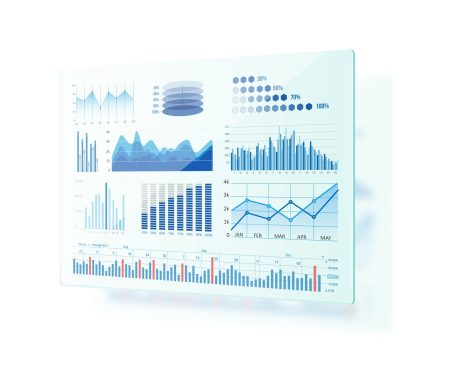This article was written by
Natixis Investment Managers’ multi-affiliate approach connects clients to the independent thinking and focused expertise of more than 15 active managers. Ranked among the world’s largest asset managers with more than $1.2 trillion assets under management,* Natixis Investment Managers delivers a diverse range of solutions across asset classes, styles, and vehicles, including innovative environmental, social, and governance (ESG) strategies and products dedicated to advancing sustainable finance. The firm partners with clients in order to understand their unique needs and provide insights and investment solutions tailored to their long-term goals.Headquartered in Paris and Boston, Natixis Investment Managers is part of the Global Financial Services division of Groupe BPCE, the second-largest banking group in France through the Banque Populaire and Caisse d’Epargne retail networks.*Cerulli Quantitative Update: Global Markets 2022 ranked Natixis Investment Managers as the 18th largest asset manager in the world based on assets under management as of December 31, 2021. Assets under management (“AUM”) of current affiliated entities measured as of March 31, 2023 are $1,208.2 billion. AUM, as reported, may include notional assets, assets serviced, gross assets, assets of minority-owned affiliated entities and other types of non-regulatory AUM managed or serviced by firms affiliated with Natixis Investment Managers.
Analyst’s Disclosure: I/we have no stock, option or similar derivative position in any of the companies mentioned, and no plans to initiate any such positions within the next 72 hours. I wrote this article myself, and it expresses my own opinions. I am not receiving compensation for it. I have no business relationship with any company whose stock is mentioned in this article.
Before investing, consider the fund’s investment objectives, risks, charges, and expenses. Visit im.natixis.com for a prospectus or a summary prospectus containing this and other information. Read it carefully. An exchange-traded fund, or ETF, is a marketable security that tracks an index, commodity, bond, or basket of assets like an index fund. ETFs trade like a common stock on a stock exchange and experience price fluctuations throughout the day as they are bought and sold. Short-term fixed-income ETFs invest in fixed-income securities with durations between one and five years. All investing involves risk, including the risk of loss. Investment risk exists with equity, fixed income, money market, and alternative investments. There is no assurance that any investment will meet its performance objectives or that losses will be avoided. The views and opinions expressed are as of June 20, 2023, and may change based on market and other conditions. This material is provided for informational purposes only and should not be construed as investment advice. There can be no assurance that developments will transpire as forecasted. Actual results may vary. Unlike passive investments, there are no indexes that an active investment attempts to track or replicate. Thus, the ability of an active investment to achieve its objectives will depend on the effectiveness of the investment manager. Diversification does not guarantee a profit or protect against a loss. There is no guarantee that a diversified portfolio will enhance overall returns or outperform a non-diversified portfolio. Asset allocation does not ensure a profit or protect against loss. ETF General Risk: ETFs trade like stocks, are subject to investment risk and will fluctuate in market value. Unlike mutual funds, ETF shares are not individually redeemable directly with the Fund and are bought and sold on the secondary market at market price, which may be higher or lower than the ETF’s net asset value (NAV). Transactions in shares of ETFs will result in brokerage commissions, which will reduce returns. Active ETF: Unlike typical exchange-traded funds, there are no indexes that the Fund attempts to track or replicate. Thus, the ability of the Fund to achieve its objectives will depend on the effectiveness of the portfolio manager. There is no assurance that the investment process will consistently lead to successful investing. Fixed Income Securities Risk: Fixed income securities may carry one or more of the following risks: credit, interest rate (as interest rates rise, bond prices usually fall), inflation, and liquidity. Below Investment Grade Securities Risk: Below investment grade fixed income securities may be subject to greater risks (including the risk of default) than other fixed income securities. Foreign and Emerging Market Securities Risk: Foreign and emerging market securities may be subject to greater political, economic, environmental, credit, currency, and information risks. Foreign securities may be subject to higher volatility than US securities, due to varying degrees of regulation and limited liquidity. These risks are magnified in emerging markets. Interest Rate Risk: Interest rate risk is a major risk to all bondholders. As rates rise, existing bonds that offer a lower rate of return decline in value because newly issued bonds that pay higher rates are more attractive to investors. ALPS Distributors, Inc. is the distributor for the Natixis Loomis Sayles Short Duration Income ETF, the Natixis Vaughan Nelson Mid Cap ETF, the Natixis Vaughan Nelson Select ETF, and the Natixis US Equity Opportunities ETF. Natixis Distribution, LLC is a marketing agent. ALPS Distributors, Inc. is not affiliated with Natixis Distribution, LLC. Natixis Distribution, LLC (fund distributor, member FINRA|SIPC) and Loomis, Sayles & Company, L.P. are affiliated.
Seeking Alpha’s Disclosure: Past performance is no guarantee of future results. No recommendation or advice is being given as to whether any investment is suitable for a particular investor. Any views or opinions expressed above may not reflect those of Seeking Alpha as a whole. Seeking Alpha is not a licensed securities dealer, broker or US investment adviser or investment bank. Our analysts are third party authors that include both professional investors and individual investors who may not be licensed or certified by any institute or regulatory body.
Read the full article here














